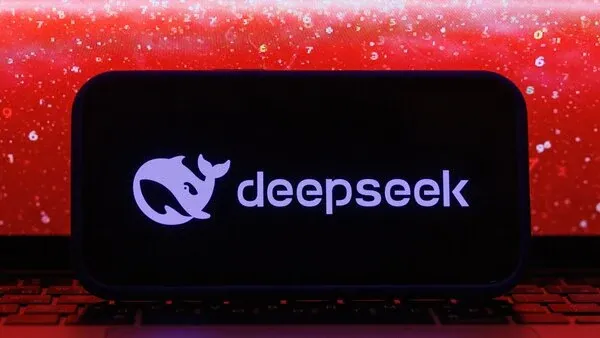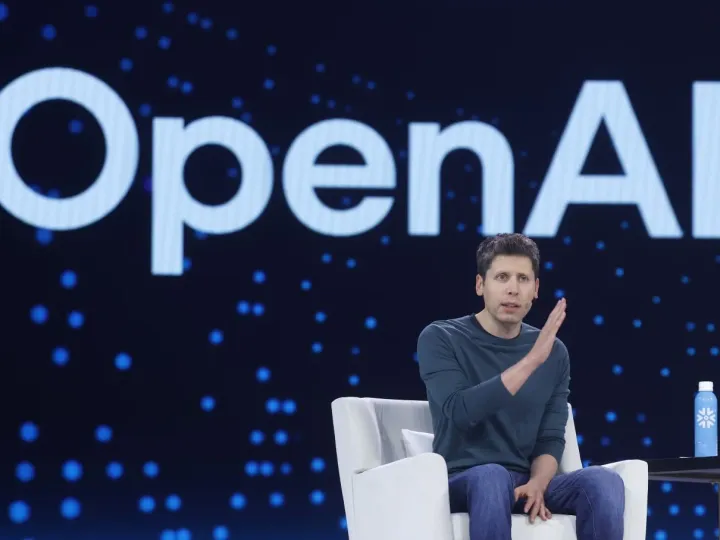AI Revolution: China Catches Up With the U.S. Faster Than Expected

China’s AI Race: DeepSeek Shrinks Gap With U.S. to Just Three Months
China's AI Surge: A Bold Step Toward Global Leadership
China is making remarkable progress in artificial intelligence (AI), closing the gap with the United States to just three months in some areas, according to Lee Kai-fu, founder of AI startup 01.AI. Thanks to innovative breakthroughs by firms like DeepSeek, China is now competing head-to-head with Western tech giants in AI development.
DeepSeek’s latest cost-efficient AI reasoning model, developed using less advanced chips, has disrupted global perceptions about U.S. sanctions hindering China’s AI growth. The company’s ingenuity in maximizing hardware efficiency is proving to be a game-changer.
DeepSeek’s AI Breakthrough: Smarter, Faster, and More Efficient
DeepSeek shook the AI industry in January 2024 by unveiling an AI reasoning model that was not only trained on less powerful chips but also cheaper to develop than its Western rivals. This innovation challenged the long-held belief that U.S. semiconductor sanctions would severely cripple China’s AI advancements.
“Previously, I thought China was six to nine months behind in everything. Now, I believe we are only three months behind in core AI technologies and actually ahead in some areas,” said Lee Kai-fu in a recent interview in Hong Kong.
DeepSeek’s AI models utilize a new approach to reinforcement learning, allowing them to display their reasoning process before delivering answers—a feature pioneered by OpenAI but not yet made available to users.
U.S. Sanctions: A Blessing in Disguise?
The U.S. restrictions on semiconductor exports were intended to slow down China’s AI progress. However, Chinese firms have turned this obstacle into an opportunity by developing innovative algorithms that work around these limitations. Lee believes these restrictions have served as a double-edged sword—creating short-term hurdles but also fueling creativity and resilience in China's AI sector.
“DeepSeek’s ability to figure out the chain of thought in a new way is proof that Chinese companies are not just catching up but may even be more innovative now,” said Lee.
China’s Expanding AI Ecosystem
The Chinese AI industry saw a surge in activity following the launch of OpenAI’s ChatGPT in late 2022. Major tech companies like Baidu, Alibaba, and ByteDance quickly jumped into the race to build foundational AI models. However, it was DeepSeek’s breakthrough that truly signaled China’s rise in AI dominance.
Lee Kai-fu, a well-respected AI leader and former head of Google China, launched 01.AI in March 2023. His company joins other promising startups such as ZhipuAI and Moonshot in shaping the future of AI in China.
AI Startups vs. Tech Giants: The Battle for Innovation
In today’s AI landscape, investing in proprietary AI models has become a risky endeavor. The field is dominated by well-funded tech giants and an explosion of open-source alternatives, making it difficult for startups to compete.
Instead of building its own foundational models, 01.AI is focusing on AI applications—developing software solutions that help businesses efficiently deploy AI technologies.
“It’s a bold move for startups to invest in proprietary models. That’s why 01.AI is concentrating on practical applications rather than competing with tech giants in model-building,” said Lee.
01.AI’s Latest Innovation: Wanzhi Software Platform
Earlier this month, 01.AI launched Wanzhi, a new enterprise AI software platform designed to help businesses integrate AI solutions seamlessly. The company has already started generating revenue, earning $15 million in 2024, with projections for significant growth in 2025.
With China’s AI sector advancing rapidly, startups like DeepSeek and 01.AI are proving that innovation thrives under pressure. By optimizing resources, refining AI algorithms, and challenging Western dominance, China is making its mark as a true competitor in the global AI race.
China’s AI Future Looks Brighter Than Ever
China’s rapid AI advancements, driven by firms like DeepSeek and 01.AI, signal a new era of technological competitiveness. Despite geopolitical restrictions and semiconductor limitations, China’s AI sector continues to innovate, adapt, and push boundaries.
With the AI gap narrowing to just three months, it’s clear that China is no longer just catching up—it’s setting the pace in specific areas of AI research and development. The question now is: How long before China overtakes the U.S. in AI innovation



